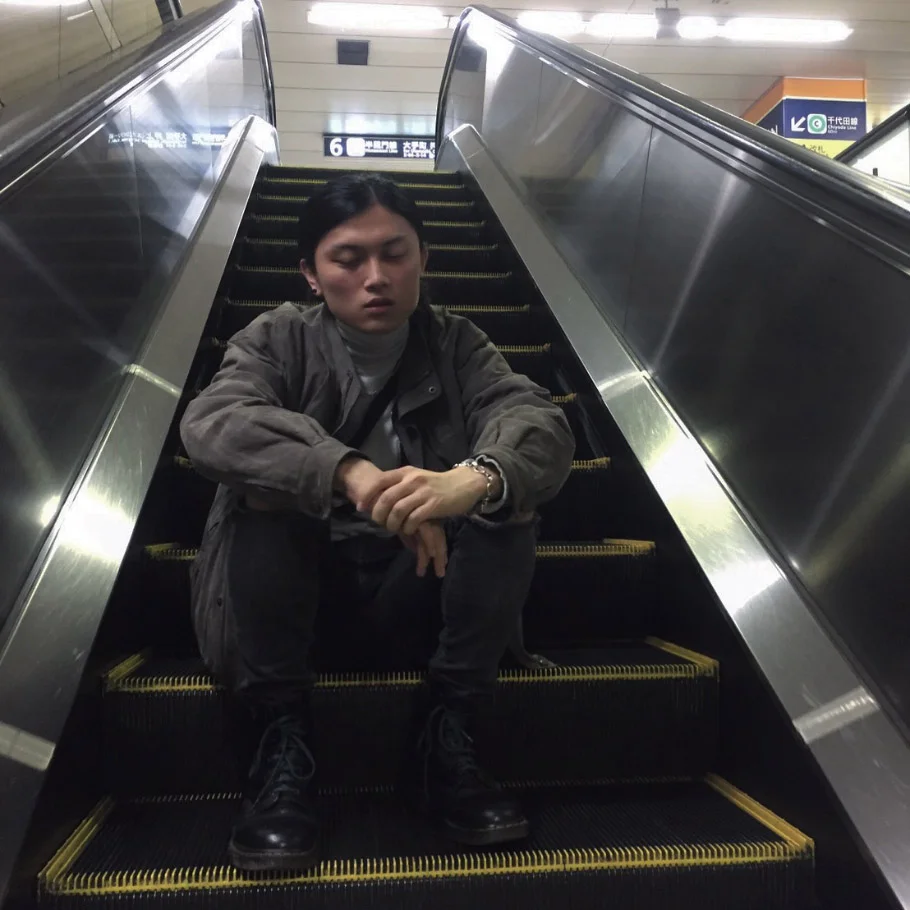Jiga
While his work is experimental, industrial, and data auditorial, he incorporates the sounds of traditional Asian ballads. Jiga’s sound symbolizes the ancient beauty and the modern anxiety felt within Japanese culture. While little to no information is recorded of Jiga on social media, his lack of online presence puts Jiga in the the post-internet club realm. We got to ask Jiga some questions to give insight and thought process behind his sound.
Where are you from and where is your practice based?
I’m from Tokyo and based too.
For how long have you been making music?
I’m 21 old and I started to make electronic music 2 years ago but I was in a Deathcore and Post hardcore band before.
Your work uses noise and frequencies that reminiscence of Japanese artist Ryoji Ikeda. Are you inspired by Ikeda’s work?
Thank you. I am involved with him now; however, I met him after the lillllill EP was finished. I have especially come to like his sounds, various colours and shapes in a monochromatic worldview.
I might unconsciously be inspired under the direct or indirect influence by him. I’m making a more aesthetic and mixing shoegazing noises works(mini album) now.
Do particular sounds translate to visual or other sensory modality input such as in Ikeda’s work?
Right, I can translate sounds to visuals and shapes - particularly noises. I like to make more abstract visual works from now on that are different like this. https://vimeo.com/275682517 https://lafcof.tumblr.com/ https://www.instagram.com/_lafcof_/
What inspires you outside of sound/audio?
The roaring sound of daily life and limitless rhythm patterns on the internet.
What does the name “Jiga” represent?
Jiga (自我 Ego in Japanese) to know oneself, to understand oneself, being myself.
Images/music courtesy of JIGA
interview ALEX ASSIL
What to read next









